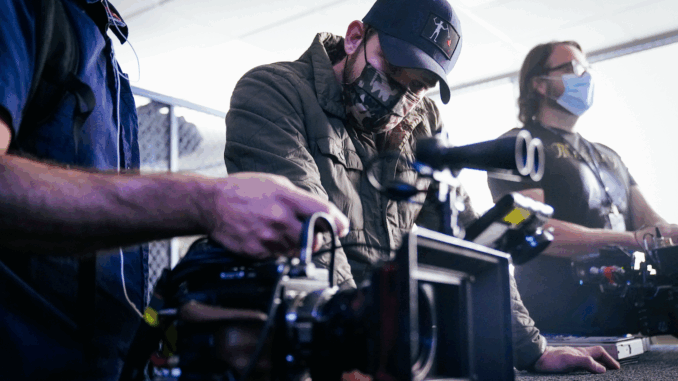
Acting That Hurts to Watch — Because It’s Real
When you watch Max Thieriot in Fire Country — eyes swollen, breath clipped, voice cracking as Bode Donovan breaks under emotional weight — you might think, “That’s too raw to be acting.”
You’re right.
Max doesn’t perform pain. He relives it. He reaches into the darker corners of his own experience and brings it to light — not for pity, not for praise, but to tell the kind of truth that hurts and heals at the same time.
“Sometimes a scene wrecks me,” Max has admitted. “Because I didn’t realize I still had that wound.”
For him, acting isn’t escape. It’s confrontation.
The Private Struggles Behind the Public Strength
Though he rarely discusses it in detail, those close to Max — and attentive fans — know he has endured emotional struggles. Anxiety. Sleeplessness. The pressure of keeping everything together. The guilt of feeling like he’s never doing enough — as a father, husband, actor, creator.
Instead of hiding these struggles, Max uses them. He translates them into characters who are wounded, flawed, desperate to be loved but terrified of being seen.
Bode Donovan isn’t fictional. He’s a mirror.
“There’s a lot of me in Bode,” Max says. “The parts I usually don’t let people see.”
Why Bode Feels So Painfully Human

In Fire Country, Bode is constantly at war with himself. He lashes out. He shuts down. He longs for connection but resents needing it. Max plays him with such aching vulnerability because he knows that feeling — the tightness in your chest when pride fights with loneliness.
Many actors would play Bode’s anger loud. Max plays it quietly, because he knows real pain simmers before it explodes. He’s been there.
That’s why a single look from Bode — a clenched jaw, a tear he swallows — speaks more than a full monologue. Because behind that look is lived experience.
Writing From Wounds
As co-creator and writer of Fire Country, Max doesn’t just act the emotion — he builds it. Many storylines are inspired by people he grew up with: friends who battled addiction, families fractured by grief, men searching for second chances and carrying shame like a second skin.
When writing Bode, Max often taps into feelings he never had the words for in real life. The scripts become a safe space to articulate what was once unspeakable.
“It’s easier to write the pain than to talk about it,” he says. “And sometimes that’s the only way it gets out.”
This emotional honesty is why Fire Country resonates so deeply. It’s not glossy or glamorized. It’s messy, honest, and unflinching.
Transforming Pain Into Purpose
Max doesn’t glamorize trauma — but he believes in its creative power. What once felt like weight — anxiety, guilt, regret — becomes fuel for stories that connect people, heal wounds, and offer solidarity.
Fans often write him to say: “I see myself in Bode.” Or, “You gave voice to something I couldn’t explain.”
That’s the gift of turning pain into art: you turn isolation into belonging.
“If someone feels less alone because of something I shared,” Max says, “then the pain didn’t win.”
How He Protects Himself While Diving Deep
Of course, this level of emotional exposure comes at a cost. Max has said there are days when filming leaves him exhausted, emotionally stripped. Scenes that trigger real memories or unresolved grief take a toll.
To cope, he leans on his wife, Alexis, his sons, and the peace of rural life. Working in the vineyard, away from noise and cameras, allows him to recenter himself after carrying Bode’s burdens.
It’s a necessary balance: create from pain, but don’t live there forever.
Empathy Born from Experience
Because he knows pain, Max leads with empathy. He recognizes suffering in others — especially cast and crew — even when they’re not saying a word. He checks in. He listens without fixing. He holds space.
This sensitivity makes him not just a gifted actor, but a compassionate leader.
On set, people say he’s the first to offer comfort, the last to judge. His vulnerability invites others to drop the mask, and that leads to stronger performances, deeper stories, and a culture of trust.
Pain as the Pathway to Power
In a world that often equates strength with silence, Max Thieriot offers a different model: strength through honesty. Power through tenderness. Courage through emotional transparency.
He doesn’t need to fake intensity — because the emotion is already inside him. And instead of hiding it, he shares it — not recklessly, but purposefully.
“Art doesn’t have to be perfect,” he says. “It just has to be true.”
And in telling the truth of his own scars, Max gives his audience permission to feel their own — and maybe start healing, too.
